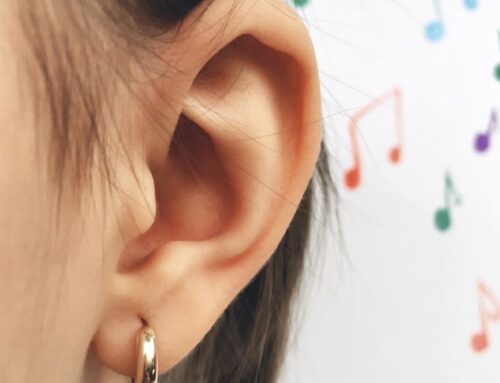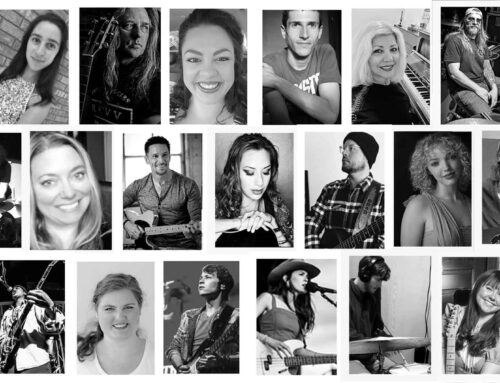For some, their musical journey is a gratifying one that spans various life stages, or it can begin at later stages. Is there a best time to start music lessons? Whether you are a parent contemplating when to introduce your child to music or an adult considering picking up an instrument, the question of the best time to learn music is a common and valid one. In this guide, we explore the different stages of life and various factors that influence the opportune moments to delve into the world of music.
At Capstone Music in Burlington, we welcome students of all ages – kids and adults – to learn the instrument of their choice! Our team of music instructors teach all sorts of instruments, so why not try a few if you’re unsure where to start?
1. Early Childhood: Planting the Seeds of Musicality
Early childhood is often considered an optimal time to introduce children to the world of music. Research suggests that exposure to music during these formative years can positively impact cognitive development, including language skills, spatial-temporal skills, and creativity. Music engages young minds, fostering a love for rhythm and melody.
Parents can incorporate music into a child’s life through activities such as singing lullabies, playing musical games, or introducing simple instruments. The innate curiosity of children at this stage makes it easier to capture their interest in exploring the sounds around them.
2. Adolescence: Nurturing Skills and Discipline
As children grow into adolescents, they often develop more patience, discipline, and cognitive abilities. This stage presents an excellent opportunity to start formal music lessons or delve deeper into learning to play an instrument. Many individuals pick up instruments such as the guitar, piano, or violin during their teenage years.
Adolescents can benefit from structured music education, including learning to read sheet music, understanding musical theory, and honing technical skills. The discipline acquired through music practice can also have positive spillover effects into other areas of life.
3. Adulthood: It’s Never Too Late to Learn
Contrary to a common misconception, there is no age limit when it comes to learning music. Adults can find joy and fulfillment in pursuing music education at any stage of life. Whether you’re a complete beginner or someone returning to music after a hiatus, adulthood offers the advantage of personal agency and resources to shape your musical journey.
Adults can explore various learning avenues, from taking formal lessons to joining community music groups or even learning independently through online resources. The key is to find a balance that fits into your schedule and aligns with your personal goals.
4. Personal Readiness: The Driving Force Behind Learning
Regardless of age, the best time to learn music is when you’re personally ready and motivated. A genuine interest in music enhances the learning experience and sustains motivation during challenging times. If you’re considering learning music, take the time to reflect on your readiness and commitment to the journey.
When You’re Ready: Finding the Right Music Instruction School
When you’ve decided that you’re ready to embark on a musical journey, finding the right resources becomes crucial. One excellent option is to enroll in a local music instruction school that offers a variety of instruments. These schools often provide a supportive environment for beginners and offer a range of classes to cater to diverse musical interests.
If you’re undecided about which instrument to learn, a music instruction school can be an ideal place to explore your options. Many schools offer trial classes or introductory sessions where you can try out different instruments before making a commitment.
A Great Range of Instructors Matters
When selecting a music instruction school, look for one that boasts a diverse and experienced roster of instructors. A great range of instructors ensures that you can find someone who aligns with your learning style and musical preferences. Different instructors may specialize in various genres or teaching methods, allowing you to tailor your learning experience.
Moreover, a school with a variety of instructors offers flexibility. If you find that your initial choice isn’t the perfect fit, you can explore other options within the same institution. This flexibility is particularly valuable as your musical tastes and goals may evolve over time.
Explore Instruments: Trying Before Committing
For those unsure about which instrument to learn, the opportunity to try different instruments can be invaluable. Look for a music instruction school that encourages exploration and offers introductory sessions for multiple instruments. Trying out different instruments allows you to discover which one resonates with you the most.
As you explore, consider the long-term commitment required for each instrument. Some instruments may have steeper learning curves, while others may be more beginner-friendly. Your personal preferences and musical aspirations should guide your decision.
Is it Your Time to Take Music Lessons?
Ultimately, the best time to learn music is a subjective matter influenced by personal readiness, interests, and resources. Whether you’re introducing a child to the world of melody or deciding to pick up an instrument as an adult, the joy of making music knows no age limits. When you’re ready to take the plunge, finding the right music instruction school with a diverse range of instructors and the option to explore various instruments can significantly enhance your musical journey. Remember, it’s never too late to unlock the power of music in your life.






